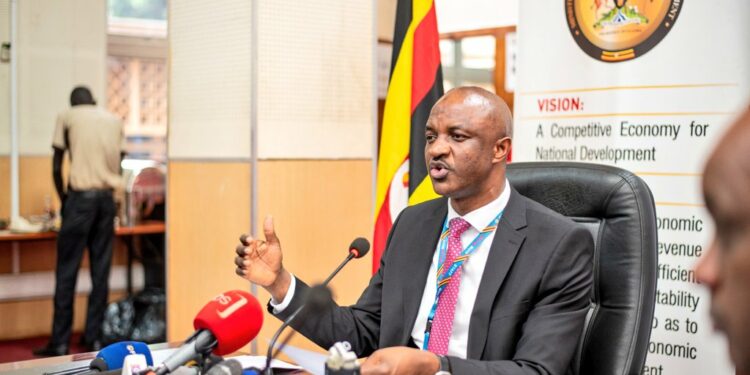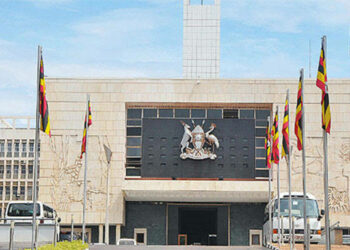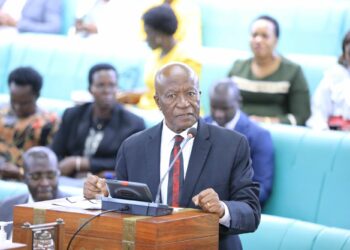Ramathan Ggoobi, the Permanent Secretary and Secretary to the Treasury – Ministry of Finance,has issued a directive to government statutory bodies, urging them to align their expenditures with national priorities.
His move follows public outcry over the recent purchase of high-end vehicles for former Speakers of Parliament, sparking debates about the allocation of resources amid competing needs.
Ggoobi emphasized that despite constitutional provisions granting autonomy to such institutions in financial matters, they are now expected to adhere to government-defined priorities.
Ggoobi made these cautions while presenting highlights of the Quarter Three Expenditure Releases and delivering updates on the state of the economy.
The directive also aims to address concerns about skewed financial allocations, especially in instances where essential obligations such as salaries, arrears, and critical projects face challenges due to resource constraints.
Ggoobi further highlighted that the new approach is intended to minimize the necessity for supplementary budgets, a topic that has sparked public discontent. He revealed that he had already rejected requests amounting to 3.5 trillion Shillings from various ministries, departments, and agencies, underlining the government’s commitment to prudent financial management.
Last December, Parliament approved a supplementary budget of 3.5 trillion Shillings for various activities, including settling a Bank of Uganda debt, preparing for international summits, and funding the national population census.
The inclusion of expenditures for planned events raised questions, with critics challenging the need for supplementary budgets for foreseeable expenses. However, Ggoobi revealed that some projects were too large to be accommodated in the annual budget, necessitating either borrowing or supplementary funds.
The Permanent Secretary affirmed the government’s commitment to fiscal consolidation, emphasizing three key objectives: boosting revenue collection, rationalizing government expenditure, and controlling borrowing. Ggoobi assured that the government would continue refining debt and expenditure management while prioritizing projects based on available resources.
As of the third quarter, 78.9 per cent of the planned budget of 25.25 trillion Shillings has been spent, with a total release, including supplementary budgets, reaching 29 trillion. The government aims to strike a balance between fiscal responsibility and meeting essential national needs as it navigates financial challenges.
Do you have a story in your community or an opinion to share with us: Email us at editorial@watchdoguganda.com












